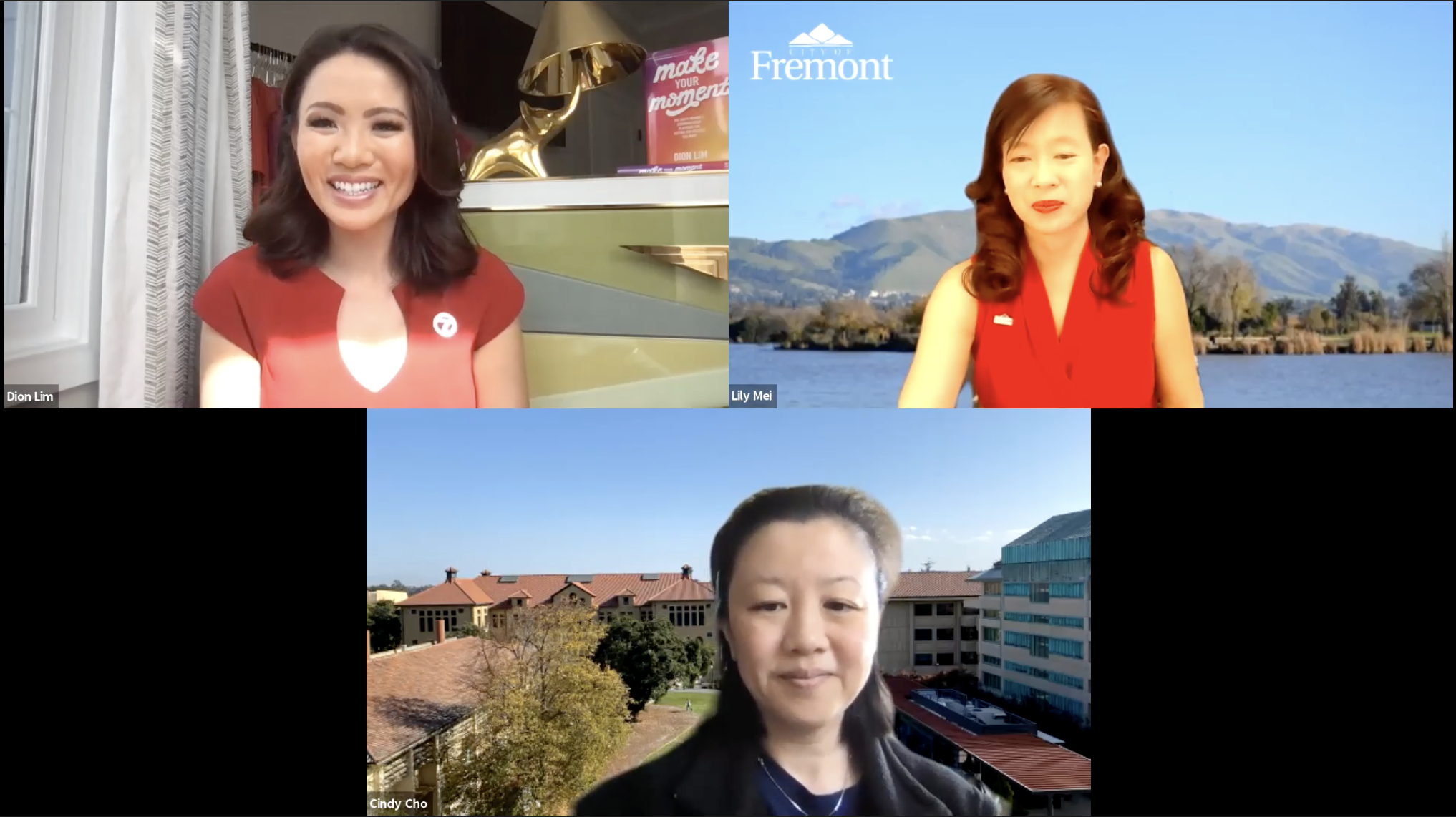This article contains discussions of racial violence and hate crimes that may be disturbing to some readers.
In response to the rise in anti-Asian attacks in the Bay Area, ABC-7 reporter Dion Lim and Fremont mayor Lily Mei praised community efforts to combat racism and said that even the smallest of contributions go a long way in collective advocacy work.
“I think people can show solidarity with something as small as making a comment on a group page. That sometimes is enough to trigger someone else to share more of their story or to throw more resources behind an effort,” Lim said during a conversation hosted by the Asian Staff Forum and Filipino American Community at Stanford on Tuesday.
Hate crimes against Asian people have escalated and become increasingly violent over the past year.
“The coronavirus-related hate in 2020 was very different from what we are experiencing in the first part of 2021,” said Lim, who covered major instances of violence against Asian-American elders in the Bay area for ABC-7. “I noticed a shift in 2021 towards more violence.”
One of the incidents was fatal. In late January, an 84-year-old Thai man, Vichar Ratanapakdee, was pushed to the ground in San Francisco and later died from a brain hemorrhage. At least 32 Asian Americans have been attacked or robbed in the Bay Area alone since the start of 2021, according to KTLA 5.
Lim says the reported attacks are only a fraction of the actual incidents.
“I believe, based on what people messaged me and it is hundreds and hundreds of messages every single day, that about 90% of incidents that happen do not get reported to the authorities,” she said.
Mei, who is the first woman and minority mayor in Fremont’s 63-year history, emphasized that the increased targeting of elderly Asian Americans is particularly concerning because this population is less comfortable reporting the incidents. Mei praised the work of Stop AAPI Hate, which is creating stronger support networks and language accessibility for elders.
Despite the lack of reporting, both women found hope in the mobilization of their communities. For example, 13-year-old Ashlyn So organized a “Stand For Asians” rally in San Mateo, and construction contractor Ray Tong raised $6,000 to buy more than 400 air horns that were distributed to Asian elders in Oakland.
Mei emphasized the importance of dialogue in solidarity work.
“Awareness is essential to have this conversation,” she said. “It’s easy for people to say, ‘that’s not really a crime.’ We need to allow people to say: ‘this is not acceptable for us.’”
Both Lim and Mei grew up in cities where Asian people weren’t the majority. Lim grew up in Michigan, Ohio and Connecticut. Her experience of growing up in rural, non-diverse places caused her “secondary trauma.”
Mei also experienced racist sentiment while growing up in Philadelphia during the Vietnam War era.
“I’ve had my tires slashed, my mailbox blown up, my windows shot out,” she said. “As a child, you’re sitting there wondering ‘why me?’”
Now, Mei is seeing widespread community activism in response to a problem she has experienced her whole life.
“This is one of the first times in quite a few years that I’ve seen so many people mobilized. I’m so sad to see that it took to the point where there’s violence,” Mei said. “This should be an ongoing discussion and dialogue that we have, that all people should be able to live safely in their communities.”
